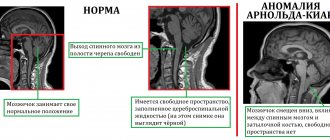Anyone who has ever worked has at some point felt the pressure of work-related stress. Unfortunately, there is no type of activity that would not entail any stressful consequences, even if you love what you do, not to mention if you are just “working” the allotted time. The simplest and most understandable stress factor is the urgency or complexity of a particular work commitment. Annual report, difficult negotiations, difficult inspections by regulatory authorities. But when stress extends beyond individual work tasks and begins to accompany you every day, it becomes chronic, overwhelming, and harmful to both your physical and emotional health.
We recommend taking an empathy test!
Unfortunately, such long-term stress is all too common. In fact, an annual survey of working citizens consistently shows that work is a significant source of stress for most. You are not always able to avoid stressors that arise in the profession. However, you can take some steps to manage the causes of burnout.
Constant stress at work. Sources of stress
Certain factors tend to go hand in hand with work-related stress.
Here are some common occupational stressors:
- Low pay.
- Excessive load.
- Little opportunity for growth or professional advancement.
- Activities that are not attractive or challenging.
- Lack of social support.
- Lack of sufficient decision-making authority and professional independence.
- Conflicting job requirements or unclear performance expectations.
All this often develops into full-fledged chronic stress.
Stress during self-isolation and its consequences
In 2021, due to the pandemic, the interest of society and researchers in the causes and manifestations of stress caused by isolation and restrictive quarantine measures has increased.
In Russia, 34% of companies were forced to completely switch to remote work due to strict quarantine. After the abolition of the non-working days regime, 35%6 of organizations retained the home office format for at least part of the staff.
Thus, many employees were left to work from home and faced the stress of self-isolation, surrounded by family and in limited space.
A similar situation is faced by astronauts who live on the ISS for several months. They are also limited in movement and communication, and are afraid of the unknown.
However, before the flight, astronauts undergo lengthy psychological training and practice exercises to combat stress. In addition, when forming a crew, the compatibility of members according to many criteria is necessarily taken into account. And at the beginning of the pandemic, after the transition to self-isolation “one day at a time,” many people were deprived of this opportunity.
Consequences of uncontrolled stress
Unfortunately, work-related stress does not disappear when you return home after a day of work. Our psyche does not separate the professional from the personal and we drag work stress into our daily lives. Stress at work begins to affect your overall well-being, health, and relationships with loved ones. A stressful environment contributes to problems such as headaches, abdominal and lower back pain, sleep disturbances, short temper and difficulty concentrating. The effects of chronic stress can lead to anxiety, insomnia, high blood pressure and a weakened immune system. In the future, worsening, stress becomes the cause of truly serious diseases, such as depression, obesity, and heart disease. Unhealthy ways of reducing stress, such as overeating, eating unhealthy foods, smoking, or drug and alcohol abuse, contribute to the worsening of these problems. And all this is done to us by the stress associated with professional activity.
Consequences of professional stress
The negative consequences of occupational stress are associated with persistently increased concentrations of glucocorticoids in the blood. They affect the cardiovascular, nervous, reproductive and immune systems of humans.
Consequences of prolonged work stress:
- Heart rhythm disturbances, increased blood pressure.
- Gastritis, peptic ulcer of the stomach and intestines.
- Kidney diseases.
- Dermatitis.
- Gaining body weight or its sharp decrease.
- Depression.
- Alcoholism.
- Frustration (stress and frustration have much in common. It is manifested by anxiety, despair, anger, aggression).
Stress at work. How to cope?
Monitor your occupational stressors. Start by keeping an activity journal and completing it over the course of a week or two to determine which situations create the most stress and how you respond to them. Write down your thoughts, feelings and information about the professional environment, describe the people and circumstances involved, the physical environment and how you responded to it.
What consequences of your professional activity happened to you this week?
- Did you have to raise your voice?
- Did they raise their voice at you? Colleagues? The authorities? clients?
- Did you have to eat away your stress with unhealthy food and sweets? Didn't have time for a normal snack?
- Let's go for a walk to somehow distract ourselves and not get frustrated at work?
Keeping records of your professional activities will help you find patterns among your stressors. Try to develop healthy reactions. Instead of trying to eat fast food or relieve stress with a bottle of beer in the evening, do your best to make healthy choices when you feel stress rising in your activities.
Physical exercise
is a great way to minimize or completely eliminate the effects of professional stress. Yoga can be a great choice, and any form of physical activity is beneficial, even a simple daily walk.
Also make time for hobbies and favorite activities.
Whether it's reading books, attending concerts, exhibitions, or playing with your family, be sure to set aside time for activities that bring you pleasure.
Sleep
also plays a huge role in restoring mental well-being. Create healthy sleep habits: limit caffeine intake later in the day; Minimize mental stimulants such as computers, phones, and TV before bedtime. Set limits on your phone - in our world it's too easy to be connected 24/7. Artificially set yourself a limit and boundaries between your professional and personal life. Let no one be able to disturb you at the specific time you set. And don’t check your professional email, phone, instant messengers, etc. at this time.
Of course, for different people this border lies in different places; someone can leave work at 18.00, turn off the phone and forget about professional activities until 9.00 tomorrow. Someone is forced to be on duty even at 2 am. But, still, try, as much as possible, to draw a clear boundary between the two areas, only this can reduce the potential conflict between work and personal life and reduce the stress accompanying it.
Take time to recharge. To avoid the negative effects of chronic fatigue and burnout, we need time to recover and return to our pre-stress level of functioning.
This recovery process requires “switching off,” that is, periods of time when you are not engaged in occupation-related activities or thinking about work. That's why it's important that you unplug from time to time, and that it suits your needs and preferences. Don't let your days off go to waste. Whenever possible, take time off to relax and erase the effects of stress, so that when you return to work, you'll feel refreshed and ready to perform at your best. If you're unable to take a short vacation, get some quick relief by turning off your smartphone and focusing your attention on non-work activities for a while. Learn to relax. Techniques such as meditation, deep breathing exercises and mindfulness
(a state in which you actively observe current experiences and thoughts without judging them) can help you get rid of the causes of stress, even in the absence of a long-term reset.
Start with a few minutes a day to focus on simple activities such as: focusing on your breathing, walking, enjoying food, communicating with your children, family. The ability to focus single-mindedly on one activity without distraction will strengthen with practice, and you will find that you can apply it to many different aspects of your life.
The benefits of stress
Stress can be good for a company. When a company copes with problems, it becomes stronger and more seasoned , compared to competitors who did not have to deal with stress, it is more ready to face challenges . At a moment of crisis, not only the consequences of the crisis are resolved, but also the problems that were brewing before it .
Stress is often associated with having to make decisions under tight deadlines , a skill that is very useful in business. You can prepare for this by constantly playing reaction and decision-making games in conditions of limited resources. This is how games and business are similar. The concept of “time pressure”, which is now widespread in business, comes from chess - a situation when a player does not have time to think about a move.
From this we can conclude that it is useful to create stress (preferably in a game) in order to reduce mistakes associated with a stressful situation through training. The best prevention of stress is to keep your brain in good shape.
It happens that a stressful situation in a company is inevitable, but an individual person can react to it differently. It is important to develop the right response to stress. Nature has a response to stress, each to their own, but constant training can smooth out these differences. Emulating stress and practicing reactions is an excellent stress prevention.
Find professional support
If you continue to feel depressed due to stress in your professional life, seek counseling to help you better manage your stress and change unhealthy behavior. At the same time, you do not need to add additional sources of stress to yourself, such as searching for a psychologist, traveling time, waiting for an appointment, and changing a professional if for some reason he did not suit you. At the moment, you have access to a convenient online consultation with a psychologist on the Helppoint online service. Here you will be matched with a suitable specialist for your request, in this case, one who has experience working with professional burnout. You will be able to communicate with him anytime and anywhere, even at work, between performing your professional duties using online chat or video consultations available on any device.
Don’t wait until professional burnout becomes irreversible, start using all the resources available to you to combat it at an early stage, and live a full, happy life in harmony with yourself and your work activities.
Author: Editorial staff of the Help-Point.net portal
Start working with a psychologist right now
Start a consultation
Tags: emotional burnout consultation with a psychologist cost of consultation with a psychologist psychologist online what to do and how to cope with constant stress at work test for emotional burnout
Share
Comments
- Comments
Loading comments...
Previous article
Anxiety in children aged 5 to 7 and 9 years and younger
Next article
Psychological and economic consequences of stress in professional activities
Elizaveta Andreevna Abashina, 2nd year student, Samara State Economic University [email protected] Scientific supervisor: Natalya Viktorovna Kochetkova, Ph.D., Associate Professor, Samara State Economic University [email protected]
Psychological and economic consequences of stress in professional activity
Abstract: The concept of professional stress and its types is analyzed. The psychological and economic consequences of stress, as well as the reasons for its occurrence in a person’s life, have been identified. Key words: labor productivity, performance, stress resistance, professional stress, professional burnout.
Since the beginning of the 21st century, the problem of stress has affected almost all areas of social life, as well as the professional area. As a result, many problems of both economic and psychological nature appear, for example, a deterioration in the social well-being of the population, a significant decrease in the working capacity of the economically active part of the population, a deterioration in the crime situation and an increase in diseases associated with mental disorders. All these reasons negatively affect the country’s economy, since labor productivity decreases significantly, which in turn affects GDP and state revenues as a whole. To understand the essence of such a phenomenon in the modern world as the influence of stress in professional activity, it is necessary to formulate and understand the concept "stress". Translated from English, stress means tension or pressure; this term was originally used in technical sciences and is used to refer to an external force acting on an object. [2,c33] In psychology and medicine, stress means the totality of the body’s normal reactions to external unfavorable stimuli (stressors) that disrupt homeostasis and the general state of the central nervous system. Currently, the concept of “stress” describes the human condition in extreme and non-standard situations at the behavioral, biochemical, physiological and psychological levels. Many scientists are researching the area of professional stress, since this topic is becoming more and more relevant every year due to the accelerated pace of life and many other reasons. The progressively growing influence of stress at work is one of the main problems of modern society, since it is stress that negatively affects the individual’s health, performance and quality of work. In the psychological literature, a number of work stressors are identified, these include various conflicts, role uncertainty in the team, work overload, lack of motivation and much more [1, p. 48]. Stressors are usually closely associated with psychosomatic disorders, with mental and emotional stress, as well as with negative behavioral consequences. The main focus of the literature on occupational stress is on the concept of performance monitoring and modes of performance. In the scientific literature devoted to the creation of a general theory of work stress, based on the study of the problem of control, it has been suggested that stress can arise from the interaction of two factors: control and responsibility. [1, p 59] “Active” professions most often include managers, doctors, and builders etc. They also distinguish a “passive” type of professions that do not require high demands on the employee and provide little opportunity for control; such professions include librarians, concierges or museum observers. In professional activities, direct stress reactions (behavioural, emotional and behavioural) can be caused by the components of work systems, that is, means of work, working conditions, technologies and work content[4]. Stressful situations can be regulated by the mental and personal characteristics of the individual, but if stressful situations are not short-term, but are of a long-term nature, then they most often lead to poor health and problems at work. The well-being of an organization directly depends on its employees, therefore negative consequences and constant stressful situations of one employee are reflected directly on the entire organization. The income of an enterprise and its further development depends on how productive and efficient the employees of the enterprise are [5]. Having conducted many studies, psychologists and economists have identified the relevance of this problem and concluded that there is a direct relationship between the psychological state of each employee and the well-being of the company. In psychology, there is a term known as professional stress, which refers to the tense psychological and physical state of an employee, which arises under the influence of negative emotional and extreme factors when performing professional tasks. There are the following types of stress that arise at work: 1) Professional stress, which is directly related to the profession and type of activity; 2) Work stress, most often arising due to improper working conditions; 3) Organizational stress, arising due to the negative impact of the team or management on employee. External influences on the employee and the personal content of the goals of his professional activity determine the specifics of stress. As a result, a certain work situation or work activity can cause stress. The causes of stress are very different, but professional stress most often arises in the personal qualities of the subject of industrial relations, that is, in his attitudes, motives, tasks, worldview, needs, etc. Psychologists distinguish two types of causes of professional stress: immediate and main. The main causes of stress are interconnected with the psychological, professional and physiological characteristics of a person, and the immediate causes arise from lack of time, conflict situations with management, the complexity of the tasks, conflicts with the team and improper working conditions. In the profession of every person, any aspect of his work activity can cause stress if this aspect is understood by the individual as exceeding his capabilities and resources.[5] Events in a person’s life not related to work, the so-called personal factors: death of a loved one, financial instability, age crisis, conflicts with friends or family, can also influence the aggravation or occurrence of stress. Additional factors that aggravate a person’s stressful state include the economic crisis, an increase in crime, as well as global factors, for example, terrorism.[3,p.124]Senior researcher at the Psychological Institute of the Russian Academy of Education and candidate of psychological sciences Samukina N.V. additionally highlights types of distress (emotional, informational and communicative). Quite often, stress in work activity is associated with the concept of “professional burnout syndrome.” This term was first introduced into scientific circulation by the American psychiatrist H. Fredenberg in 1974. Professional burnout syndrome means a person’s feeling of his own uselessness, insignificance, combined with a physical state of exhaustion. Academician of the International Baltic Pedagogical Academy Boyko V.V. also defined this syndrome; according to him, “emotional burnout” is a psychological defense developed by an individual in the form of partial or complete exclusion of emotions in response to traumatic influences. This syndrome develops as a result of chronic stress and leads to emotional and energetic exhaustion of the employee.[1,p. 231] If a person constantly accumulates negative emotions and does not “get rid” of them, then professional burnout will inevitably occur, which will entail a lot of problems both in his personal life and in his work life. The model of this syndrome includes three components: 1) Lack of professional achievements; 2) Depersonalization; 3) Emotional emptiness. Having analyzed such concepts as professional stress, the syndrome of “professional burnout” and their negative impact on the performance and economic condition of the enterprise, we can say: that stress is directly related to inadequate working conditions, conflicts with the team and management, low pay and lack of prospects and career growth. Currently, in many enterprises and corporations, management often hire highly qualified psychologists to cope with constantly arising stressful situations among employees, in order to avoid a deterioration in the economic situation of the enterprise.
Links to sources 1. Bodrov V.A. Psychological foundations of professional activity. Reader.: CogitoCenter, 2007 – 1620 p. 2. Mandel B.R. Psychology of stress.: FLINTA 2014, 280 p. 3. Shcherbatykh Yu.V. Psychology of stress..: KnoRus Media 2008 330 pp. 4.4) Professional stress Access mode: https://psyera.ru/6683/professionalnyystress5.Occupational burnoutAvailable at: https://en.wikipedia.org/wiki/Occupational_burnout
How not to be nervous at work: problems and solutions
To reduce the stress load on the body during work, you need to follow a few tips:
- Learn to plan your activities. This will help you prioritize and decide which things need to be done urgently and which can wait, without losing sight of anything. Working according to a clearly drawn up plan will not give you the opportunity to be distracted by extraneous matters and will benefit your nerves.
- You should only work during business hours. When you return home after a hard day, devote yourself to family and relaxation, and do not think about unresolved work problems.
- Learn to say no. If your boss gives you new assignments that are not part of your responsibilities, and you feel that you cannot cope with them, refuse.
- If you absolutely do not like your job, change it. Labor productivity and the elimination of blues depend on satisfaction with the profession.
- Money is not the most important thing in life. Don’t forget that in life there should be other values besides earnings.5
Stress in the workplace can be associated not only with work activity, but also act as a reflection of negative experiences that have arisen in other areas of life.
To avoid stress at work, you should try:
- psychological relaxation techniques and yoga are a means of preventing possible and already manifested unstable psycho-emotional states;
- physical activity - exercises, aerobics, training on simulators will eliminate the physiological changes that accompany stress.
Remember that it is not always possible for a person in a state of chronic stress to cope with the problem on their own. The main thing is to promptly diagnose nervous overstrain based on external manifestations and normalize your condition or the condition of a loved one, otherwise somatic diseases may develop. If the above tips do not help solve the problem, do not self-medicate, seek help from specialists.








